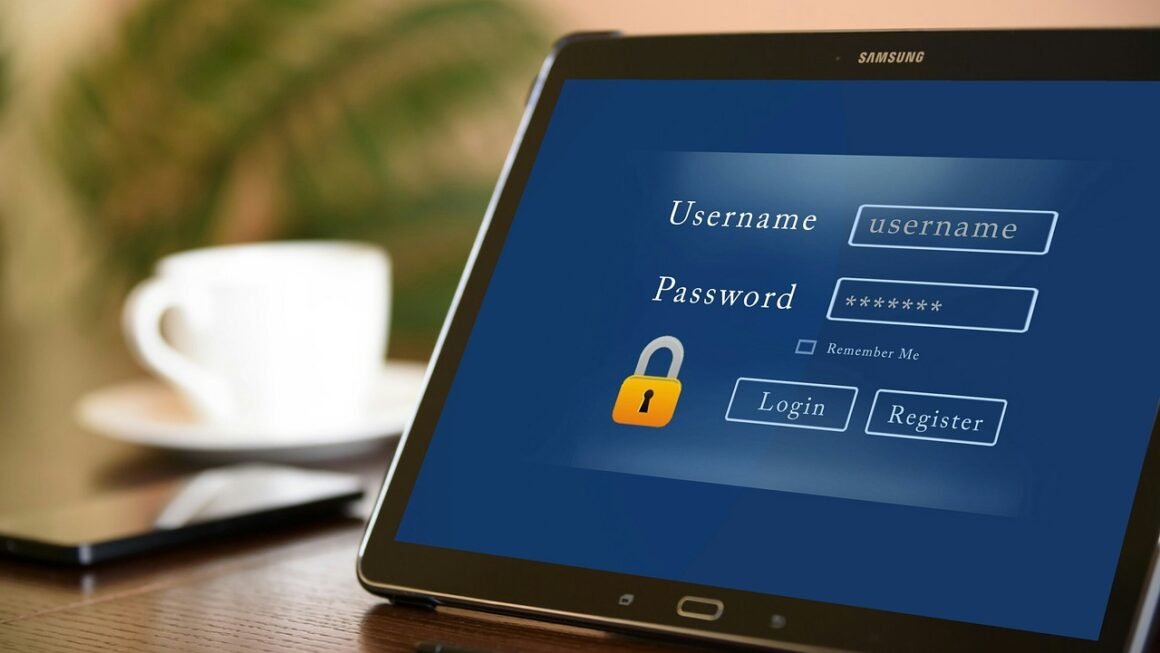Imagine browsing the internet without worrying about who’s watching your every move, accessing content restricted in your region, or securing your sensitive data on public Wi-Fi. That’s the power of a Virtual Private Network, or VPN. In today’s interconnected world, a VPN is no longer a luxury but an essential tool for online privacy, security, and freedom. This guide will explore what a VPN is, how it works, its many benefits, and how to choose the right one for your needs.
What is a VPN?
Defining a Virtual Private Network
A VPN, or Virtual Private Network, creates a secure and encrypted connection over a less secure network, like the public internet. Think of it as building a private tunnel for your data to travel through, shielded from prying eyes. This “tunnel” masks your IP address, encrypts your data, and allows you to appear as if you’re browsing from a different location.
How a VPN Works: The Technical Aspects
When you connect to a VPN, your internet traffic is routed through a VPN server operated by the VPN provider. Here’s a simplified breakdown:
- Your device connects to the VPN server.
- Your data is encrypted, making it unreadable to unauthorized parties.
- Your IP address is masked, replaced by the VPN server’s IP address.
- Your data is then sent to its destination on the internet.
- The destination receives the data as if it originated from the VPN server’s location.
Common VPN Protocols
Several protocols are used to establish and maintain VPN connections. Some common ones include:
- OpenVPN: A highly secure and open-source protocol, often considered the industry standard.
- IKEv2/IPsec: A fast and secure protocol, especially good for mobile devices.
- WireGuard: A newer, lightweight protocol known for its speed and efficiency.
- PPTP: An older protocol that’s fast but less secure; generally not recommended.
Benefits of Using a VPN
Enhancing Online Privacy
One of the primary benefits of a VPN is enhanced online privacy. A VPN masks your IP address, preventing websites, advertisers, and even your internet service provider (ISP) from tracking your online activity. This is crucial in a world where data collection is rampant.
- Example: Imagine you’re researching sensitive topics online, like medical information or political issues. A VPN can prevent this information from being tied to your IP address and potentially used for targeted advertising or discrimination.
Securing Public Wi-Fi Connections
Public Wi-Fi hotspots are notoriously insecure. Hackers often target these networks to steal personal data. A VPN encrypts your traffic, making it much harder for cybercriminals to intercept your information on public Wi-Fi.
- Statistic: A 2023 study found that over 60% of public Wi-Fi networks have no encryption, making them vulnerable to attacks. Using a VPN significantly reduces this risk.
Accessing Geo-Restricted Content
Many websites and streaming services restrict access based on your geographical location. A VPN allows you to bypass these restrictions by connecting to a server in a different country.
- Example: You might use a VPN to access Netflix content that’s only available in the US, or to watch BBC iPlayer when you’re traveling abroad.
- Tip: Check the VPN provider’s server locations to ensure they offer servers in the regions you need.
Bypassing Censorship
In some countries, governments censor internet access. A VPN can bypass these censorship efforts, allowing users to access blocked websites and social media platforms.
- Example: Journalists and activists often use VPNs to communicate securely and access information in countries with strict internet censorship.
Preventing ISP Throttling
ISPs sometimes throttle bandwidth for specific types of traffic, like streaming video or downloading large files. A VPN can prevent this by encrypting your traffic, making it harder for your ISP to identify and throttle certain activities.
- Actionable Takeaway: If you experience slow internet speeds when streaming videos, try using a VPN to see if it improves performance.
Choosing the Right VPN
Key Features to Consider
Selecting the right VPN involves careful consideration of several key features:
- Security: Look for VPNs with strong encryption protocols (e.g., OpenVPN, IKEv2/IPsec, WireGuard) and a strict no-logs policy.
- Speed: Choose a VPN with fast server speeds to avoid buffering and lag. Run speed tests to evaluate performance.
- Server Locations: Ensure the VPN offers servers in the countries you need to access geo-restricted content.
- Privacy Policy: Read the VPN’s privacy policy carefully to understand how they handle your data. Avoid VPNs that collect or share your browsing history.
- Price: VPN prices vary. Consider your budget and choose a VPN that offers a good balance of features and affordability.
- Device Compatibility: Make sure the VPN is compatible with your devices (e.g., Windows, macOS, iOS, Android).
- Customer Support: Look for VPNs with responsive customer support in case you encounter any issues.
Free vs. Paid VPNs
While free VPNs may seem tempting, they often come with significant drawbacks:
- Limited Bandwidth: Free VPNs typically impose bandwidth limits, restricting your usage.
- Slower Speeds: Free VPNs often have slower server speeds due to overcrowding.
- Data Logging: Some free VPNs log your data and sell it to third parties.
- Ads: Free VPNs often bombard you with intrusive ads.
- Security Risks: Some free VPNs may contain malware or other security threats.
- Recommendation: Paid VPNs generally offer better security, faster speeds, and more reliable performance. The cost is usually worth the peace of mind.
No-Logs Policies: What to Look For
A “no-logs” policy means that the VPN provider does not collect or store any information about your online activity. This is crucial for maintaining your privacy.
- Important Note: Some VPNs claim to have a no-logs policy but still collect some data, such as connection timestamps. Look for VPNs that have undergone independent audits to verify their no-logs claims.
Setting Up and Using a VPN
Installation and Configuration
Most VPN providers offer user-friendly apps for various devices. Here’s a general outline of the setup process:
Practical Tips for Using a VPN Effectively
- Choose a server location close to your actual location for better speed.
- Enable the VPN’s kill switch feature to prevent your data from being exposed if the VPN connection drops.
- Use a strong password for your VPN account.
- Regularly update your VPN app to ensure you have the latest security patches.
- Consider using a VPN router to protect all devices on your home network.
- Double-check that your IP address is masked by visiting a website that displays your IP address before and after connecting to the VPN.
- Use “split tunneling” if your VPN supports it. This enables you to route certain traffic through the VPN while allowing other traffic to bypass it.*
Conclusion
A VPN is a powerful tool for enhancing your online privacy, security, and freedom. By encrypting your data, masking your IP address, and allowing you to access geo-restricted content, a VPN can significantly improve your online experience. While choosing the right VPN requires careful consideration, the benefits of using one far outweigh the cost. In a world where data breaches and online surveillance are becoming increasingly common, a VPN is an essential investment for anyone who values their online privacy and security. Take the time to research and select a VPN that meets your needs, and start enjoying a safer and more private internet experience today.



